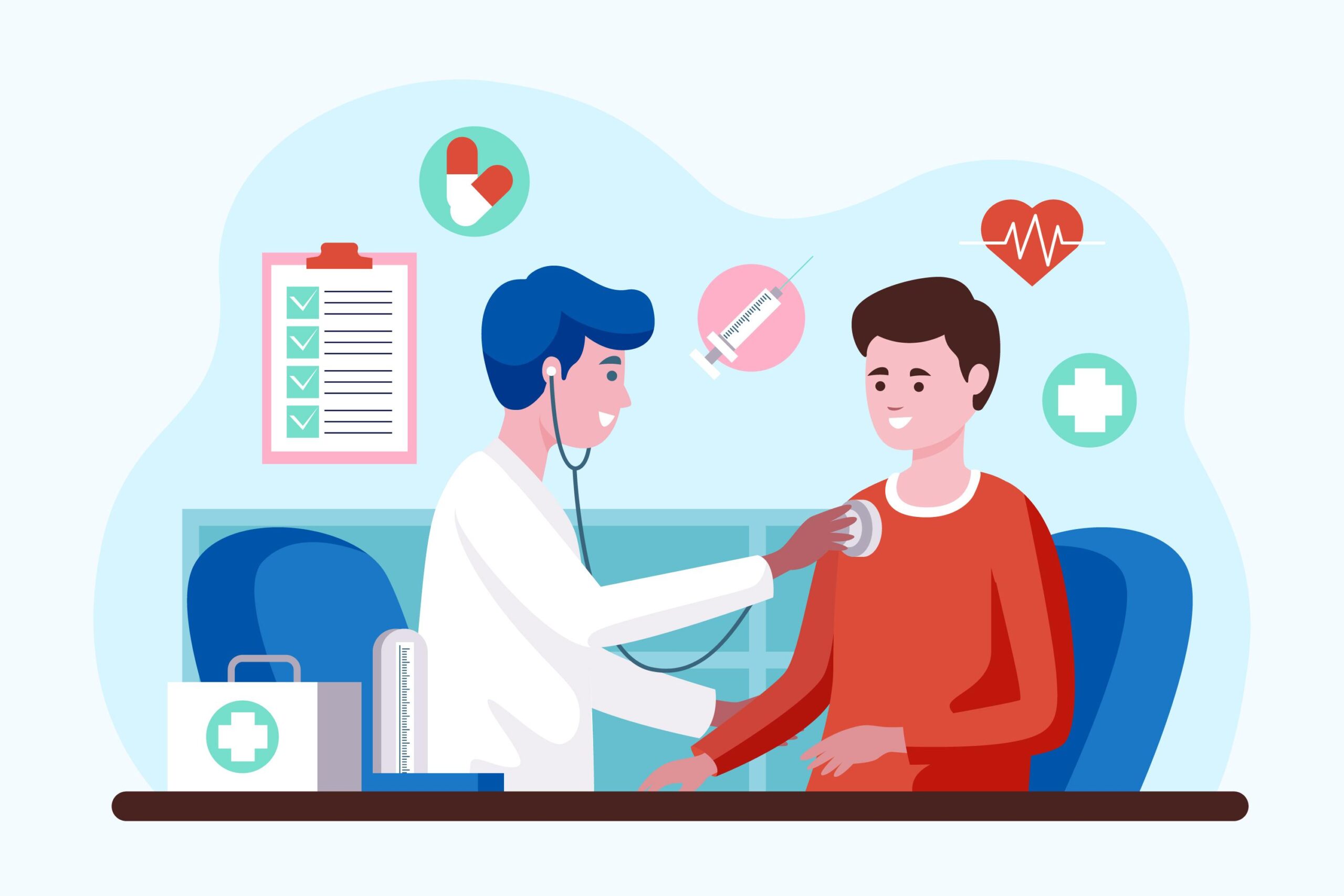“Periods irregular ho gaye hain, acne aur hairfall bhi ho raha hai, weight badhne laga hai…”
Aaj kal ye complaint hum sabke aas-paas ke young women se aksar sunne ko milti hai. Doctors ek hi cheez suspect karte hain — PCOD ya PCOS.
PCOD (Polycystic Ovarian Disease) aur
PCOS (Polycystic Ovary Syndrome)
Dono conditions mein ovaries mein multiple small cysts ban jaate hain. Ye cysts normal eggs ki jagah “immature eggs” hote hain jo release nahi ho paate.
India mein, 1 in 5 women reproductive age mein PCOD/PCOS se affected hai. Aur sabse zyada dangerous baat ye hai ki kai log ignore kar dete hain initial symptoms.
But the good news? Sonography (Ultrasound test) se PCOD/PCOS ka early detection possible hai. Agar time pe diagnose ho jaye, toh treatment simple lifestyle changes se shuru ho sakta hai, aur future fertility problems aur diabetes ka risk bhi kam ho jaata hai.
PCOD vs. PCOS – Are They the Same?
Bohot log sochte hain ki PCOD aur PCOS ek hi hai, but thoda difference hai:
PCOD (Disease): Ovaries mein multiple small cysts develop ho jaate hain. Hormonal imbalance mild hota hai. Ye manageable hota hai lifestyle changes se.
PCOS (Syndrome): Ye ek metabolic + hormonal disorder hai jisme insulin resistance, obesity, hair growth, infertility tak ho sakta hai. PCOS thoda zyada serious condition hai.
Simple words mein: PCOD = ovaries ka local issue, PCOS = pura body hormonal imbalance + lifestyle disease.
Symptoms of PCOD/PCOS
Women aksar apni daily problems ko stress ya thakan samajh ke ignore kar dete hain. But agar ye symptoms repeat ho rahe hain, toh sonography zaroor karna chahiye:
Irregular or missed periods
Heavy bleeding during periods
Acne, pimples, oily skin
Excess hair growth on face/chest (hirsutism)
Hair fall / thinning of scalp hair
Weight gain (specially belly fat)
Difficulty in conceiving (infertility issues)
Mood swings, depression, anxiety
Dark patches on skin (neck, underarms – insulin resistance sign)
Symptom ka pattern har woman mein alag hota hai. Isliye self-diagnosis nahi, test karna zaroori hai.
Why Sonography is Important in PCOD/PCOS
PCOD/PCOS ka main diagnostic tool Pelvic Ultrasound (Sonography) hai.
Ye test simple, painless, aur safe hai.
What does sonography show?
Ovaries ka size (PCOS mein ovaries bada ho jaata hai).
Multiple small cysts (egg follicles jo mature nahi hue).
Endometrium (uterus lining) ki thickness.
Ovulation ho raha hai ya nahi.
👉 Early detection ke liye Transvaginal Sonography (TVS) or Pelvic Sonography sabse accurate hai. Young girls mein abdomen se ultrasound kiya jaata hai.
Other Tests Along with Sonography
Sonography ke sath doctors kuch blood tests bhi suggest karte hain:
Hormonal Tests: LH, FSH, Prolactin, Testosterone
Thyroid Test (TSH, T3, T4) – kyunki thyroid bhi cycles disturb karta hai
Blood Sugar & Insulin Test – insulin resistance check karne ke liye
Lipid Profile – cholesterol imbalance
Early Detection Benefits
Agar PCOD/PCOS early detect ho jaye toh:
Fertility preserve ho sakti hai
Diabetes aur obesity ka risk kam hota hai
Periods regular ho jaate hain
Skin problems (acne, hairfall) control ho jaate hain
Hormonal balance restore karna easy hota hai
Late diagnosis se infertility, endometrial cancer, heart disease tak ka risk badh jaata hai.
Lifestyle & Diet Management in PCOD/PCOS
PCOD/PCOS ka treatment mostly lifestyle pe depend karta hai.
Diet Tips
Avoid junk food, sugar, refined carbs (pizza, maida, cold drinks).
High fiber foods: whole grains, brown rice, dal, sprouts.
Fresh fruits & veggies (esp. green leafy).
Include protein: eggs, paneer, fish, chicken, legumes.
Healthy fats: nuts, seeds, olive oil.
Stay hydrated: 8–10 glasses water.
Lifestyle Tips
Regular exercise (30–45 min daily) – yoga, walking, gym.
Maintain healthy weight.
Stress management – meditation, pranayama.
Proper sleep (7–8 hours).
Avoid smoking & alcohol.
Medical Treatment
Doctors may prescribe hormonal pills to regulate periods.
Medicines to reduce insulin resistance.
Fertility treatments if pregnancy planning.
Myths vs. Facts About PCOD/PCOS
Myth: PCOD means I can never conceive.
Fact: With treatment & lifestyle management, many women conceive naturally.
Myth: Only overweight women get PCOD.
Fact: Even slim women can have PCOD (called “lean PCOS”).
Myth: Cysts need surgery.
Fact: PCOD/PCOS cysts usually don’t need surgery. Lifestyle + medicine enough.
Long-Term Risks if Ignored
Agar PCOD/PCOS ignore kar diya toh:
Infertility
Miscarriage risk in pregnancy
Type-2 Diabetes
High cholesterol → Heart problems
Endometrial cancer risk
Anxiety & depression
Isliye early detection + regular sonography + blood tests bahut important hai.
FAQs
Q1. Can PCOD/PCOS be cured permanently?
Nahi, cure nahi hota. Lekin manage kiya jaa sakta hai lifestyle aur treatment se.
Q2. Kitni baar sonography karani chahiye?
Initial diagnosis ke liye, fir doctor ki advice ke hisaab se (usually 6 months–1 year mein repeat).
Q3. Kya PCOD normal periods ke sath bhi ho sakta hai?
Haan, kabhi kabhi symptoms mild hote hain, isliye sonography confirm karta hai.
Q4. Girls in teenage bhi PCOD develop kar sakti hain?
Bilkul. Aaj kal irregular lifestyle aur stress se PCOD cases teenage girls mein bhi bohot common hain.
PCOD/PCOS ek modern lifestyle disorder hai jo silently women ki health affect karta hai. But iska early detection pelvic sonography se simple aur safe hai.
👉 Agar apko irregular periods, acne, hair growth, ya weight gain ka problem hai – don’t ignore.
👉 Ek baar sonography karaaiye, blood tests karaaiye, aur lifestyle pe focus kijiye.
Remember, PCOD/PCOS manageable hai — early detection hi sabse bada weapon hai.


